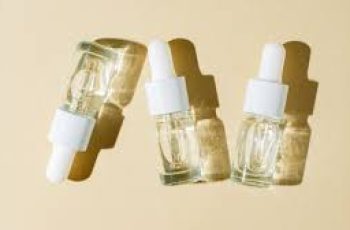
Olive oil in skin care
Olives have been used for centuries for their skin benefits- ancient Greekss used it to clean their skin and would even bathe in it. You can find both olive oil and olive leaf extract in skin care products. Olive Oil and olive leaf extract are natural, often organic ingredients and are very sustainably produced.
Olea Europaea (Olive) Leaf Extract offers strong antioxidant and anti-inflammatory benefits due to its high polyphenol content, making it ideal for skin protection and anti-aging. In contrast, olive oil is rich in fatty acids and vitamin E, excelling in deep hydration and barrier repair, primarily nourishing and moisturizing the skin.
To find out if olive oil products are right for you, make sure to check out your custom skin care regimen and shop by your Baumann Skin Type!
Olive Leaf Extract
Olea Europaea (Olive) Leaf Extract, derived from the leaves of the olive tree, differs from olive oil.
Olive leaf extract is rich in phenolic compounds, particularly oleuropein, a potent antioxidant. Oleuropein has been extensively studied for its anti-inflammatory, antimicrobial, and skin-protective properties. It also has anti-inflammatory properties, soothing irritated or inflamed skin, making it useful for conditions like eczema or rosacea.
This blog will focus on the benefits and side effects of olive oil which are different than those of olive leaf extract.
Olive Oil
Olive oil is rich in fatty acids and vitamin E, offering deep hydration and barrier repair by locking in moisture. It is best for nourishing dry skin. However, olive oil is comedogenic and can clog pores, leading to breakouts, while Olive Leaf Extract, being non-comedogenic, offers antioxidant and anti-inflammatory benefits without clogging pores.
This blog will focus on the uses of olive oil in skin care products.
Dangers and side effects of olive oil
Olive oil is not right for every skin type, or for people with allergies to olive products.
Allergies and irritated skin are extremely rare when using olive oil, but the risk does exist.
Olive oil has been shown to directly correlate to comedone and acne development in rabbits(5).
Comedogenicity
Olive oil is very much a comedogenic ingredient, meaning it can easily clog pores and cause the development of comedones in some skin types.
To avoid clogged pores, don’t leave olive oil products on your face for prolonged periods of time and definitely do not sleep with it on your face. . Use a good cleanser to remove it.
Safety
Olive oil is safe in skin care as long as it is a part of your personal skin care regimen; it is not a good ingredient for many skin types.
The EWG safety rating for olive oil is “1,” the second highest score after “verified.” This means that olive oil is regarded to have no common safety risks.
It is safe to use in pregnancy.
Olive oil can increase side effects of some face serums like retinoids by increasing absorption.
This means that when you use it in your skin care routine will affect how well your skin routine works. Shop by your Baumann Skin Type to see if olive oil products are right for your custom skin care regimen.
is olive oil safe for use in skin care?
Olive oil for specific conditions
Olive oil can be used in tandem with skin lightening ingredients to light dark spots or treat melasma.
Olive oil has unsaturated fatty acids like oleic acid that help inhibit tyrosinase.
Olive oil also has many antioxidant properties which are great for anti-aging products alongside ingredients like retinoids.
Olive oil is not recommended for many of the most common skin conditions because it is comedogenic and can damage dry skin.
Olive oil for Dry Skin
Olive oil is not good for use on extremely dry skin when used on its own because of its high concentration of oleic acid.
Oleic acid is the primary fatty acid found in olive oil, it makes small perforations in the skin which can lead to an increase in dehydration and skin irritation.
It is better to combine olive oil with other ingredients with more robust fatty acid profiles that can repair the skin barrier. There are many products that include olive oil alongside other ingredients. Some common ingredients to see alongside olive oil are:
Evening primrose oil
Jojoba oil
Mineral oils
Unrefined coconut oil
Some of my favorite skin care products for dry skin types containing olive oil are:
Olive Oil in Acne-prone Skin
Olive oil can cause acne in acne prone skin. It is comedogenic and has been shown to increase clogged pores in many studies over the years.
Olive oil is not antibacterial either, meaning it does not eliminate any of the acne causing bacteria that it locks into your pores.
If you are acne-prone, olive oil is not a good ingredient for you unless it is formulated in a small amount which means it will be lower on the list of ingredients the product label. However, olive leaf extract is very different and might be right for you.
Olive Oil for Eczema
Eczema is a dry skin condition which can be worsened by exposure to high concentrations of oleic acid.
The best oils for eczema have much lower (if any) concentration of oleic acid, with high concentrations of soothing, hydrating fatty acids like linoleic acid.
Olive oil is not effective at keeping the skin hydrated as other oils like jojoba or argan; one study showed that mineral oils prevented trans-epidermal water loss 170 times more effectively than olive oil did(4).
Olive oil can make your skin more susceptible to irritation from detergents, fragrances and preservatives by injuring the skin barrier.
For those reasons, olive oil is not recommended if you have a history of frequent skin allergies, eczema, or very dry skin.
benefits of olive oil
Benefits of olive oil in skin care
Olive oil can have many benefits if it is a part of your skin care routine.
Oleic acid, the most common fatty acid in olive oil, helps with ingredient absorption in many kinds of creams and serums.
It is a weak tyrosinase inhibitor because of its predominance of unsaturated fatty acids, so it is used in the formulation of some hyperpigmentation treatments.
It contains high concentrations of antioxidants which are great for anti-aging treatments and repairing sun damage.
Some studies have also found healing properties and anti-inflammatory effects present in olive oil.
And of course, olive oil is one of the most common and healthy cooking fats in the food industry across the globe. It is affordable and accessible globally and organic olive oil is available.
Here are some of my favorite olive oil products:
Olive oil for hair
Olive oil is sometimes used in hair care, but it can result in acne on the hairline if you have acne-prone sensitive skin. (2)
A benefit olive oil has for hair care is its high concentration of oleic acid which helps hydrate the cuticle of the hair.
If oleic acid is not irritating to your skin type, it can help other ingredients absorb into your scalp. This type of treatment has been shown to help with many kinds of hair loss (6).
The best oils for hair are:
Argan oil
Coconut
Jojoba
Tea Tree Oil
Skin Lightening
As it is mostly made of unsaturated fat, olive oil is a weak tyrosinase inhibitor. All unsaturated fats are tyrosinase inhibitors to varying degrees.
Tyrosinase inhibitors inhibit the production of the pigment, melanin, which means they are commonly used in spot treatment products as well products for other kinds of hyperpigmentation.
Does olive oil make your skin glow?
Yes, olive oil can make your skin appear to “glow.”
Olive oil, like most oils, is an emollient which can create a glowing effect on the skin when it’s reflecting light.
olive oil for glowing skin
What kind of oil is olive oil?
Olive oil is primarily composed of unsaturated fatty acids.
This means olive oil could be categorized as a dry oil.
Olive oils is a pressed plant extract, but it is a carrier oil, not an essential oil.
Olive oil contains various potent compounds, many with antioxidant properties, such as (3):
Carotenoids
Chlorophylls
Fatty acids (especially oleic acid)
Polyphenols
squalene
Sterols
Triglycerides (more lipids)
Tocopherols (Vitamin E)
Olive oil fatty acids
Oleic acid is the primary fatty acid in olive oil, followed by linoleic, then palmitic and stearic acids.
Oleic acid creates small perforations on the skin which assists in the absorption of other ingredients.
Linoleic acid soothes inflammation, so it is beneficial in many skin care products.
If you are looking for an anti-redness oil, but you have dry skin, the oleic acid in olive oil might not be right for your skin.
Some oils with high linoleic acid concentrations on the table below are:
Argan oil
Borage seed oil
Safflower oil
Sunflower oil
table of fatty acids
Thanks for reading this blog on olive oil in skin care. I hope you feel more prepared to take control of your skin health. If you’re ready to take the next step towards perfect skin, check out our free skin type quiz below, which will provide you with a full recommended routine and an explanation for every product. When you shop with us using your Baumann Skin Type, you can feel confident that every product you buy is right for you. Take the quiz by clicking the button below!
Questions? Either ask our AI bot or come ask me on Reddit at r/skintypesolutions.


